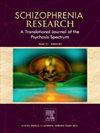HONE: A learning health system platform for advancing early intervention in first episode psychosis
IF 3.6
2区 医学
Q1 PSYCHIATRY
引用次数: 0
Abstract
The emergence of psychosis in early adulthood necessitates rapid, specialized care to improve outcomes and reduce the duration of untreated psychosis. Early intervention services (EIS) for First Episode Psychosis (FEP) are exemplars of healthcare reform but face challenges in sustaining durable improvements across patients' lifetime illnesses. Learning Health Systems (LHS) present a transformative framework, integrating care delivery with continuous quality improvement and research. In this paper, we detail the development and evolution of the Health Outcomes Network and Education (HONE), a novel informatics platform designed to support an LHS for FEP.
HONE facilitates data harmonization, analytics, and visualization to drive quality improvement, leveraging user-centered design to engage clinicians and align with clinical workflows. The platform emphasizes evidence-based outcomes, integrating diverse data sources, including patient-reported outcomes, clinical assessments, and external datasets, within a harmonized repository. By employing a minimalist, question-based approach to data visualization, HONE delivers actionable insights that inform clinical practice while generating research questions to improve care.
We discuss key lessons from HONE's development, including the importance of user engagement, iterative refinement, and balancing standardization with site-specific flexibility. HONE has been successfully deployed across multi-site networks, demonstrating its scalability and adaptability to diverse healthcare settings. This paper highlights HONE's contributions to bridging the gap between knowledge and care, fostering bi-directional knowledge translation, and advancing mental health outcomes. Future efforts will focus on expanding HONE's reach, integrating predictive analytics, and evaluating its long-term impact on FEP care within the LHS framework.
求助全文
约1分钟内获得全文
求助全文
来源期刊

Schizophrenia Research
医学-精神病学
CiteScore
7.50
自引率
8.90%
发文量
429
审稿时长
10.2 weeks
期刊介绍:
As official journal of the Schizophrenia International Research Society (SIRS) Schizophrenia Research is THE journal of choice for international researchers and clinicians to share their work with the global schizophrenia research community. More than 6000 institutes have online or print (or both) access to this journal - the largest specialist journal in the field, with the largest readership!
Schizophrenia Research''s time to first decision is as fast as 6 weeks and its publishing speed is as fast as 4 weeks until online publication (corrected proof/Article in Press) after acceptance and 14 weeks from acceptance until publication in a printed issue.
The journal publishes novel papers that really contribute to understanding the biology and treatment of schizophrenic disorders; Schizophrenia Research brings together biological, clinical and psychological research in order to stimulate the synthesis of findings from all disciplines involved in improving patient outcomes in schizophrenia.
 求助内容:
求助内容: 应助结果提醒方式:
应助结果提醒方式:


